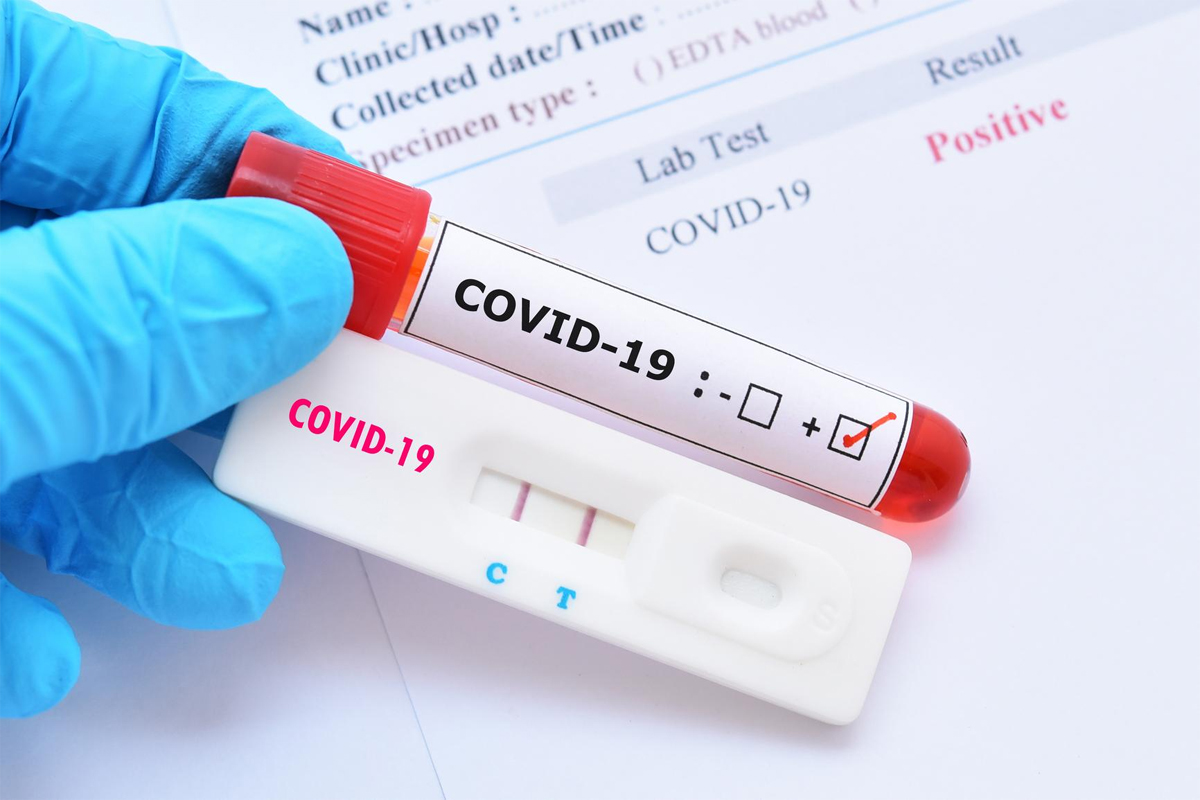NEW DELHI, Jan 10: Contacts of confirmed COVID cases do not need to get tested unless identified as “high-risk” based on age or comorbidities, according to a new Government Advisory.
The ICMR Advisory on Purposive Testing Strategy for COVID-19 also said individuals undertaking inter-state domestic travels do not need to get tested either.
It said testing can be undertaken either through RT-PCR, TrueNat, CBNAAT, CRISPR, RT-LAMP, Rapid Molecular Testing Systems or through Rapid Antigen Test (RAT).
A positive point-of-care test (home or self-test/RAT) and molecular test is to be considered confirmatory without any repeat testing, the Advisory said.
Symptomatic individuals, testing negative on home/self-test or RAT should undertake RT-PCR test, it stated.
“People who need not be tested: Contacts of confirmed cases of Covid unless identified as high risk based on age or comorbidities and individuals undertaking inter-state domestic travel,” said the Advisory.
It further said that asymptomatic individuals in community setting, people who stand discharged as per home isolation norms and patients “being discharged” from a Covid facility as per revised discharge policy also need not be tested.
Listing the category of people who could be tested, the advisory said in community settings, symptomatic individuals, at-risk contacts (elderly over 60 years of age and individuals with co-morbidity) of laboratory confirmed cases may be tested for COVID-19.
Also, individuals undertaking international travel (as per country-specific requirements and international travellers arriving at Indian airports/seaports/ports of entries as per laid down guidelines) may be tested.
In hospital settings, testing may be undertaken as per discretion of the treating doctor with considerations such as no emergency procedure (including surgeries and deliveries) should be delayed for the lack of a test and patients should not be referred to other facilities for lack of a testing facility, said the advisory.
All arrangements should be made to collect and transfer samples to testing facilities, mapped to the health facility, it said.
Asymptomatic patients undergoing surgical/non-surgical invasive procedures including pregnant women in/near labour who are hospitalised for delivery should not be tested unless warranted or symptoms develop, the advisory said.
Admitted patients may not be tested more than once a week, it said.
The ICMR’s advisory is generic in nature and may be modified as per discretion of the state health authorities for specific public health and epidemiological reasons, the advisory said.
Meanwhile, five to 10 per cent of the active COVID cases this time so far needed hospitalisation but the situation is dynamic and may change rapidly, the Centre said today and asked States to keep a watch on cases under home isolation and in hospitals.
During the second surge of COVID infections in the country, the percentage of active cases that needed hospital care were in the range of 20-23 per cent, Union Health Secretary Rajesh Bhushan said in a letter to States and Union Territories.
The rise in COVID-19 cases in various parts of the country appears to be driven by the Omicron variant as well as by the continued presence of Delta, he said and stressed on augmenting human resources, particularly healthcare workers, for COVID management.
“In the present surge, five to 10 per cent of active cases needed hospitalisation so far. The situation is dynamic and evolving. Therefore, the need for hospitalization may also change rapidly,” Bhushan said.
All States and Union Territories are advised to keep a daily watch on the situation of the total number of active cases, cases under home isolation, the number of hospitalized cases, cases on oxygen beds, ICU beds and on ventilatory support, he wrote.
“Based on this monitoring, the requirement of healthcare workers and their availability health facility wise must also be reviewed daily as was done during the second surge,” the Health Secretary said.
Appreciating that while various States and Union Territories initiated steps for the establishment of jumbo health facilities, field hospitals, temporary hospitals among others, Bhushan said both infrastructure and human resources have their limitations.
Therefore, it is important to conserve healthcare workers by initiating staggering wherever possible and by restricting elective procedures in the hospitals, he advised. (PTI)
Trending Now
E-Paper


